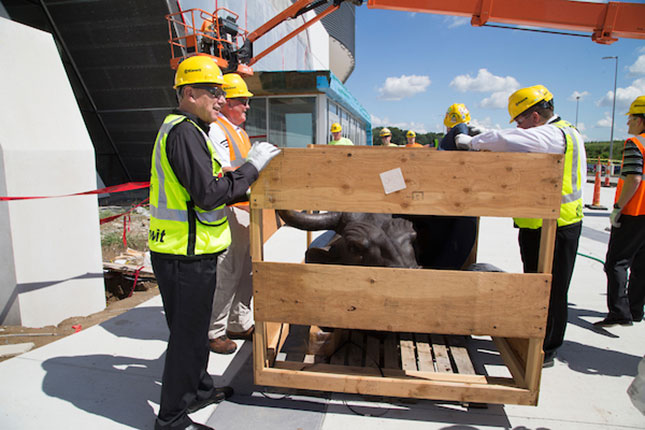Teaching the History of How the Modern Employment Relationship Was Humanized
- contact: John Kretzschmar - William Brennan Institute for Labor Studies
- phone: 402.554.5902
- email: jkretzschmar@unomaha.edu
- search keywords:
- labor
- building trades
- union
- apprentices

Omaha – The William Brennan Institute for Labor Studies has a statewide mission to work with the women and men of organized labor to educate them about the knowledge and skills required to maintain and expand meaningful workplace democracy on job sites across this state. In a consumer-driven economy where the best friends of Main Street merchants are well paid workers, the Institute has been fulfilling that mandate since 1980.
One of the most popular classes over the last 25 years has been one the Institute offers to building and construction trade unions in the Omaha and Lincoln areas. It is a two-part labor history class that covers many aspects of how organized labor championed the expansion of workplace rights and safeguards.
In this class, building trades apprentices learn what work was like before the widespread advent of labor unions and why and how everyday wage earners united in an attempt to level the playing field in the workplace.The class begins by asking students to think about the five most important relationships they have and how each improves their quality of life. I typically begin the class after introductions by asking students to think about the five most important relationships they have and how each improves their quality of life. I debrief it by asking students to raise their hands if they had one of their listed relationships in one of the following categories: a relationship with family; or with friends; or with their Creator; or with nature; or with family pets. As I go through the categories, fewer and fewer hands are raised. Then I end by asking how many put down the employer/employee relationship?
The employment relationship affects a person's state of mind, the amount of spare time he or she has, and his or her income. All of which affect the kinds of life fulfilling activities he or she can provide for his or her family and loved ones.
Almost no one raises their hands at the last category. I comment that it is fairly typical, because we do not typically think of work as a relationship between employer and employee. Then I suggest that it may be the most important relationship they have because the employment relationship directly and indirectly affects each and every one of the other relationships they identified as adding to their lives. The employment relationship affects a person’s state of mind, the amount of spare time they have, and their income. Each of which affects the kinds of life fulfilling activities they can provide for their family and loved ones.
In doing this simple exercise at the beginning of class, I am able to focus the students' attention on the task at hand, learning and appreciating all that the study of how the humanization of the employment relationship has to teach us about who fought for and against the changes; the rationales both sides used; and how well the laws, once on the books, were enforced.
The Institute welcomes opportunities to speak to community groups about the American labor movement's many contributions to creating a ladder that literally millions of everyday wage earners use to climb out of poverty and into the middle class.